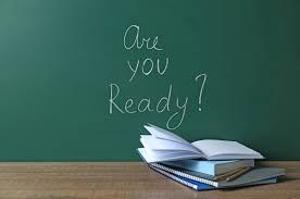
Communication is one of the most important skills that every student needs to learn. It is not only useful during student life but also plays a key role in future career growth and personal development. Students who know how to communicate well can share their thoughts clearly, perform better in class, and build strong relationships. The best thing is that communication is not something fixed; it can be improved with regular practice and effort.
In this article, we will discuss why communication skills are important for students, the challenges they usually face, and practical ways to improve step by step.
Why communication skills are important for students
Good communication goes beyond just speaking. It includes listening carefully, expressing ideas, body language, and writing skills. For students, communication is important for many reasons. It helps them understand lessons better, ask questions, and discuss ideas with teachers and classmates. It also makes teamwork easier, especially during group projects or debates. Strong communication skills give students more confidence in expressing their opinions. In the long run, these skills also make a big difference in interviews, presentations, and professional life.
Barriers students face in communication
Many students struggle with communication because of different challenges. Some are shy or feel nervous when speaking in public. Others have a limited vocabulary or do not practice enough to express their thoughts in the right way. The overuse of social media language sometimes affects formal speaking and writing. Fear of being judged or making mistakes is another reason why students avoid speaking up. Recognizing these problems is the first step to improving.
Practical ways to improve communication skills
One of the most effective ways to improve communication is to become a good listener. Paying attention when someone is speaking, not interrupting, and asking follow-up questions shows respect and improves understanding.
Reading more books, articles, or newspapers also helps. Reading exposes students to new vocabulary and sentence styles, which makes communication richer. A simple habit of learning a few new words daily and using them in conversations can make a big difference.
Public speaking is another useful practice. It builds confidence and teaches clarity. Students can start small by practicing in front of a mirror or speaking to a few friends before addressing larger groups.
Participating in class discussions, debates, or study groups improves thinking and expression. It also helps students organize their thoughts before speaking.

Body language also matters. Simple actions like making eye contact, sitting with confidence, and using natural hand gestures can make communication stronger.
Writing regularly is another effective way. Students can keep a journal, write essays, or even start blogging. Writing improves grammar, vocabulary, and clarity in expressing ideas.
Technology can also help. Language-learning apps and online resources provide tools to practice vocabulary, grammar, and speaking. Watching public speaking or communication videos online can also give new techniques.
Finally, students should ask for feedback. Teachers, friends, or parents can point out areas of improvement. Taking feedback positively helps in becoming a better communicator.
Building confidence in communication
Confidence is one of the biggest challenges in communication. Many students hesitate because they are afraid of making mistakes. The key is to start small, by speaking with family or close friends, then moving on to larger groups. Preparing in advance for presentations or speeches also reduces nervousness. Staying positive and not focusing too much on mistakes builds confidence over time. Celebrating small improvements, like using a new word correctly or speaking up in class, keeps motivation high.
Role of teachers and parents
Teachers and parents can support students in developing communication skills. Teachers can encourage participation in class, assign presentations, and create opportunities for discussion. Parents can motivate children to read more and create an open environment at home where students feel free to share their thoughts without fear of judgment.
Long-term benefits of good communication
The benefits of good communication extend far beyond school life. Students who communicate well perform better academically because they can ask questions and express themselves clearly. They also build stronger relationships with peers and teachers. In the future, these skills help them become leaders, succeed in interviews, and perform better in their careers. Employers often value employees who can express ideas effectively and work well with others.



.jpg)













Share your comments & questions here
No comments yet. Be the first to comment!